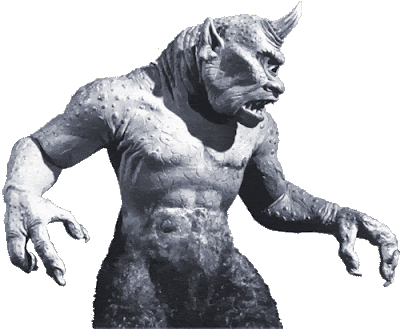1. Griffin (or Gryphon)
The griffin is normally characterised as a lion with the head and wings of an eagle. It was thought to be a particularly strong creature as the lion is the king of beasts and the eagle is the king of birds. In ancient times it was considered the protector of the divine. The creature was seen in civilisations as early as the Minoan civilisation (2700BC to 1450 BC).
2. Phoenix
The phoenix is a mythical firebird from Ancient Egypt which is portrayed as a bird that dies in fire and is reborn of it. It is normally portrayed as having gold and red feathers. At the end of its life, a phoenix is said to build a nest of cinnamon twigs which it then ignites. The bird is destroyed in the fire but a new young phoenix is born from the same fire. It was believed to have a life span of 500 – 1461 years (depending on who you ask). Its tears were thought to heal wounds.
3. Unicorn
The unicorn is usually shown as a horse with a long single horn on its head, but it originally had a billy-goat beard, lion’s tail, and cloven hooves. The unicorn is virtually the only creature in legend which did not come from human fears and was, in fact, a rather gentle creature. It was considered impossible to capture a unicorn except by using unfair methods. The horn was said to be able to neutralise poison. The unicorn first came to be known during the Indus Valley Civilisation (3300–1700 BC).
4. Satyr
Satyrs were originally seen as companions of the goat god Pan in ancient Greek civilisation. The first drawings of satyrs were of normal men, though often with an erect phallus. It was later merged with the Roman faun which is when they began to be depicted as half men half goats (the upper body being that of the man, and the lower half being that of a goat). Satyrs are described as roguish but faint-hearted folk — subversive and dangerous, yet shy and cowardly. In old age they are often seen with horns on their head, while young satyrs are seen with nubs instead.
5. Minotaur
In Greek mythology, the Minotaur had the upper body of a bull and the lower body of a man. It was said to live in the centre of the labyrinth which was a large maze-like construction built for King Minos of Crete especially to house the minotaur. It was designed by Daedalus and is generally thought to have been at the site of Knossos. The minotaur appears briefly in a scene from the Satyricon by Petronius. He was eventually killed by Theseus.
6. Cyclops
A Cyclops is a member of a primordial race of giants, each with a single round eye in the middle of its forehead. Cyclopes are described by both Homer and Hesiod. According to Hesiod, the Cyclopes—Brontes, Steropes and Arges — were the sons of Uranus (Sky) and Gaia (Earth), while according to Homer the term “Cyclops” refers to a particular son of Poseidon and Thoosa named Polyphemus who was a Cyclops.
7. Mermaid
The mermaid (or merman in the case of a male) has been discussed since at least 5000 BC. It is highly possible that manatees or dugongs may have been confused for these creatures, and even Christopher Columbus claimed to have seen some on his journeys. In British folklore they are considered to be a forewarning of doom or disaster.
8. Gorgon
Gorgons were wicked women with fangs, and living snakes instead of hair. Legend says that looking at the face of a gorgon will turn a person into stone. Probably the most famous gorgon is Medusa who was the only mortal sister of three (the others being Stheno and Euryale). Because Medusa was mortal, Perseus was able to kill her by cutting off her head while he looked at her reflection in his shield. Images of Gorgons were often used by the Greeks to ward off evil.
9. Banshee
The banshee is from Irish mythology and are usually seen as female spirits. They were considered to be omens of death and were believed to have come from the “otherworld”. They are generally thought to be remnants of an ancient Celtic pagan religion in which they were minor gods, spirits, or ancestors. In English they are often referred to as fairies. According to legend, banshees will wander around the outside of a house wailing when someone inside is about to die.
10. Giant
“Giant” is the English word to describe monsters of great strength and size but human form. They appear in the Bible (in the story of King David and Goliath). In mythology they are frequently seen to be in conflict with the gods and are generally considered to be associated with chaos and wild nature. They were seen as early as the Ancient Greek culture where they were known as gigantes – creatures born from Gaia who was fertilised by the blood of Uranus when he was castrated.
credit to listverse












0 comments:
Post a Comment